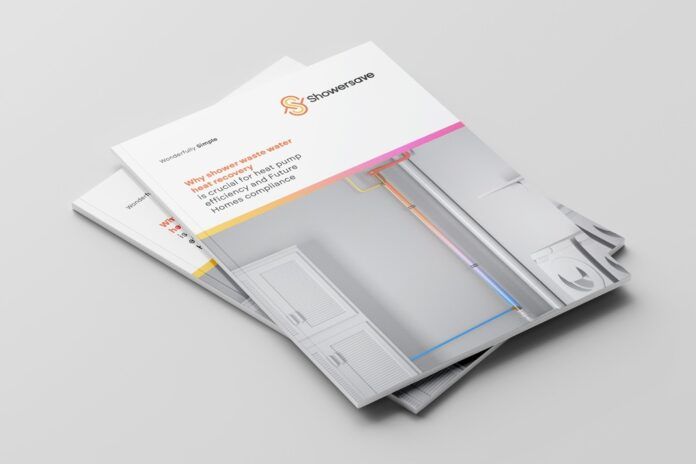
Showersave, part of The Keystone Group, has published a new white paper exploring how Waste Water Heat Recovery Systems (WWHRS) can help housebuilders overcome key challenges in meeting the Future Homes Standard (FHS) 2025.
Titled, ‘Why shower waste water heat recovery is crucial for heat pump efficiency and Future Homes compliance’, Showersave said its new paper sets out the case for WWHRS as a proven solution that boosts heat pump performance, cuts energy use and supports compliance with tightening building regulations.
With air source heat pumps (ASHP) set to become the default heating and hot water technology in new homes, the company stated that the paper highlights the growing risk of underperformance, particularly around domestic hot water supply, as systems struggle to meet demand efficiently. Oversizing heat pumps to compensate raises costs and increases electricity use, it noted, placing added strain on the grid.
The white paper shared research from the Centre for Sustainable Technologies at Ulster University, which showed that combining WWHRS with ASHPs delivers the following benefits:
- Increased hot water capacity: allowing more consecutive showers without cold water interruptions
- Lower running costs: reducing hot water energy use by up to 55% and cutting electricity bills by £15 to £200 a year for a typical household
- Smaller hot water cylinders: helping reduce material costs and save space in new homes
- Shorter recovery times: improving efficiency and reducing homeowner complaints
- Reduced grid strain: particularly during peak load periods, supporting net-zero goals
Tony Gordon, managing director at Showersave, said: “Heat pumps are designed for space heating and work brilliantly but can be challenged with hot water demands, especially as households get larger. Without WWHRS, this means higher bills and an inadequate supply of hot water to meet demand, which impacts customer satisfaction.
“This white paper shows why WWHRS is the simplest, most cost-effective way to improve heat pump performance, meet Future Homes targets, and reduce the burden on the electricity grid.”
